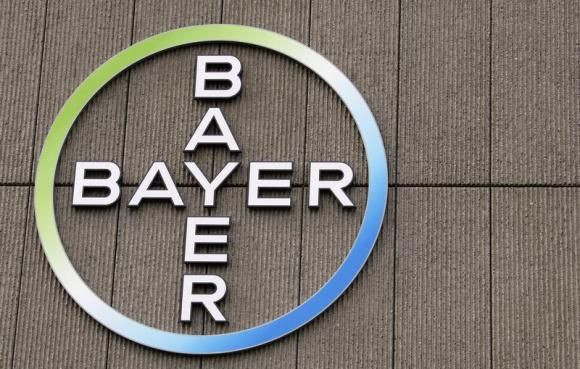Bayer And Monsanto Should Pay Cleanup Costs For Toxic PCB Chemicals, Says German Environmental Group

Updated, Tuesday 7:00 p.m.
Dirk Frenzel, a spokesman for Bayer, sent the following statement, rejecting the Coalition Against Bayer Dangers' claims and accusing the group of having an "anti-industrial" and "anti-capitalist" mindset.
"Do you know that the so-called Coalition Against Bayer Dangers is a protest group with an extreme ideological bias? It has been following us for years already. With its protests against Bayer, the CBG defames not only the management but also Bayer employees and shareholders, using insinuations and half-truths and by distorting facts.
"The fact is that worldwide Bayer was one of several manufacturers of polychlorinated biphenyls (PCB). Owing to their favorable technical properties, PCBs had been products of choice, for example, for plasticizers, coating additives, hydraulic fluids and cooling and insulating fluids in electrical engineering. At the beginning of the 1970s it was discovered through refined analytical methods that as a result of their high stability, which was so beneficial in technical terms, PCBs have poor biodegradability and accumulate in organisms.
"In 1972, Bayer suspended the sale of PCBs for open application segments and marketed them from then on only as non-combustible hydraulic fluids for underground mining and in closed systems for the electrical industry. In neither of these fields were there any comparable substitutes at the time. Bayer stopped producing and marketing PCBs completely in 1983, although their use in transformers and capacitors was still permitted. This was six years before the German government introduced its PCB ban in 1989."Bayer thus met its responsibility to protect health and the environment to a degree that went beyond the legal requirement."
Original Post:
A number of German environmentalists think it’s high time chemical companies were held accountable for a now-banned pollutant that they were manufacturing for nearly half a century. And they’re speaking out against one of those companies at a place where its top executives are certain to hear it: an annual stockholders’ meeting.
The Coordination Gegen Bayer-Gefahren (Coalition Against Bayer Dangers) said Wednesday that Bayer AG (FWB:BAYN) should take responsibility for the “immense costs of cleanup and treatment” from polychlorinated biphenyls, or PCBs, a widely used family of chemicals first manufactured in the 1920s. PCBs have been banned in part of Europe and the United States since the 1970s, but they do not readily break down and can remain in the environment for decades. According to the EPA, the poisonous agents are known to cause cancer, and a multitude of harms to the immune, reproductive, nervous and endocrine systems.
The anti-Bayer coalition calls PCBs “among the most toxic substances ever produced by chlorine chemistry.” The group says Bayer AG, the German chemical and pharmaceutical giant, was the world’s second largest producer of the agents, accounting for some 160,000 metric tons of PCBs, or 12 percent of the world’s total production. Bayer sold PCBs under the trade name Clophen.
Last month, the coalition filed a countermotion calling on Bayer stockholders to oppose the ratification of the company’s supervisory board and board of management until Bayer takes responsibility for its “toxic PCB heritage.” The group accuses Bayer not only of producing the substances but also “ignoring for decades” evidence that PCBs are harmful. Following the Toxic Substances Control Act of 1976, the group said that Bayer, seeing the writing on the wall, actually stepped up production of PCBs and did not stop until 1983 (by that point, the lion's share was exported.) The coalition also filed a second countermotion with the hopes of preventing Bayer from building a carbon-monoxide pipeline to connect its Dormagen and Krefeld sites. Both countermotions were published on the Bayer website this week and will be heard at the company’s annual stockholders’ meeting on April 29.
“It is unacceptable that the producers of PCBs profited from them for half a century and are not now contributing to the costs occasioned by their production and use,” the coalition wrote.
In the past, Bayer has fought efforts to get it pay for PCB-related costs. In 2003, city officials in Oslo, Norway, demanded that the company pay for the removal of PCBs from the city’s harbor. But after what Bayer called a “careful study,” the company passed the buck, arguing that PCBs are only one class of many pollutants in the harbor. The company added that the PCBs in that case likely came from old paint that was removed from ships but not properly disposed of -- something it had no control over.
In a press release Wednesday, the coalition said some 20,000 metric tons of PCBs were used in caulking compounds in Germany, and that more than half of that quantity remains in buildings to this day, including in many schools and universities. The group also cited Monsanto Company (NYSE:MON), which it said was the world’s largest producer of PCBs, as being responsible for the pollutants’ residual effects. “Monsanto and Bayer have long known that PCBs are harmful to humans and the environment,” Philipp Mimkes, from the coalition’s advisory council, said in a statement. “The chemical industry is therefore complicit in thousands of cases of poisoning.”
Bayer’s annual stockholders’ meeting will take place in Cologne, in western Germany. A spokesperson for the company did not immediately respond to a request for comment. The full text of the countermotions are available to the public on the Bayer website.
Got a news tip? Email me. Follow me on Twitter @christopherzara.
© Copyright IBTimes 2024. All rights reserved.





















